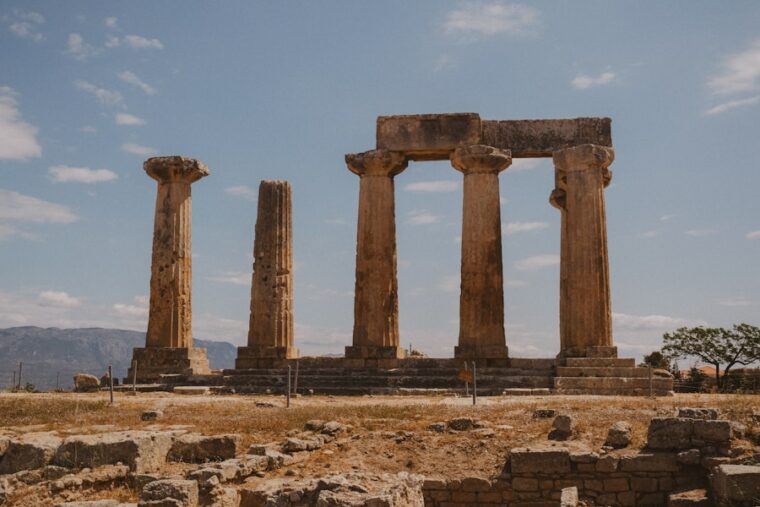Iraq, located in the heart of the Middle East, is a land steeped in history and culture. From the ancient ruins of Babylon to the bustling modern cities of Baghdad and Erbil, Iraq offers a unique blend of old and new. The country is home to a diverse population, with a rich tapestry of ethnicities, religions, and traditions. Visitors to Iraq can expect to be greeted with warm hospitality and a deep sense of pride in the country’s heritage. Despite its tumultuous recent history, Iraq is a land of resilience and hope, with a bright future ahead.
Exploring Iraq’s Ancient Ruins: From Babylon to Ur
One of the main draws for visitors to Iraq is its wealth of ancient ruins and archaeological sites. The city of Babylon, located south of Baghdad, was once the center of the ancient Mesopotamian civilization and is home to the famous Hanging Gardens, one of the Seven Wonders of the Ancient World. Nearby, the city of Ur is believed to be the birthplace of Abraham, a key figure in the three major monotheistic religions. The ruins of Ur include the ziggurat, a massive stepped pyramid that was dedicated to the moon god Nanna. These sites offer a fascinating glimpse into the ancient world and are a must-see for history enthusiasts.
Discovering Iraq’s Natural Beauty: The Mesopotamian Marshes and Zagros Mountains
In addition to its historical sites, Iraq is also home to stunning natural landscapes. The Mesopotamian Marshes, located in the southern part of the country, are a unique wetland ecosystem that has been inhabited for thousands of years. Visitors can explore the marshes by boat, observing the diverse wildlife and traditional Marsh Arab villages along the way. In the north, the Zagros Mountains offer breathtaking scenery and opportunities for hiking and outdoor adventure. The rugged peaks and lush valleys provide a stark contrast to the flat plains of southern Iraq, making it a must-visit destination for nature lovers.
Navigating Modern Iraqi Cities: Baghdad, Erbil, and Basra
Iraq’s modern cities offer a vibrant mix of old and new, with bustling markets, historic landmarks, and modern amenities. Baghdad, the capital city, is a bustling metropolis with a rich history dating back thousands of years. Visitors can explore the city’s many museums, mosques, and historic sites, as well as enjoy its lively cafes and restaurants. Erbil, the capital of Iraqi Kurdistan, is a rapidly growing city with a thriving arts and culture scene. The city’s ancient citadel, a UNESCO World Heritage site, offers stunning views of the surrounding area. In the south, Basra is a major port city with a rich maritime history and a lively waterfront area. Each city offers its own unique blend of history, culture, and modernity, making them all worth exploring.
Experiencing Iraqi Cuisine and Hospitality
Iraqi cuisine is a delicious blend of flavors and influences from across the Middle East. Traditional dishes such as kebabs, falafel, and kubba are popular staples, often served with flatbread and a variety of dips and salads. Iraqi hospitality is legendary, with visitors often being welcomed into homes with open arms and treated to generous feasts. Tea is an important part of Iraqi culture, often served with sugar and fresh mint as a sign of hospitality. Visitors to Iraq can expect to be treated to delicious meals and warm hospitality wherever they go.
Understanding Iraqi Customs and Etiquette
Iraqi customs and etiquette are deeply rooted in tradition and respect for others. Visitors should be mindful of local customs, such as removing shoes before entering someone’s home and dressing modestly when visiting religious sites. It is also important to greet others with warmth and respect, using traditional Arabic greetings such as “As-salamu alaykum” (peace be upon you). When dining with locals, it is customary to eat with your right hand and to express gratitude for the meal. Understanding and respecting these customs will help visitors to feel more at ease and make a positive impression on their hosts.
Practical Travel Tips for Visiting Iraq
Traveling to Iraq requires careful planning and preparation. Visitors should research current travel advisories and security conditions before planning their trip. It is also important to obtain the necessary visas and permits before arriving in the country. While in Iraq, it is advisable to stay informed about local news and events and to avoid areas with potential security risks. Visitors should also be mindful of cultural sensitivities and dress modestly when in public. Finally, it is important to respect local customs and traditions in order to have a positive and enriching experience in this fascinating country.
In conclusion, Iraq offers a wealth of history, culture, and natural beauty for visitors to explore. From ancient ruins to modern cities, from traditional cuisine to warm hospitality, there is something for everyone in this diverse and vibrant country. With careful planning and an open mind, travelers can experience the best that Iraq has to offer and gain a deeper understanding of this fascinating land.


